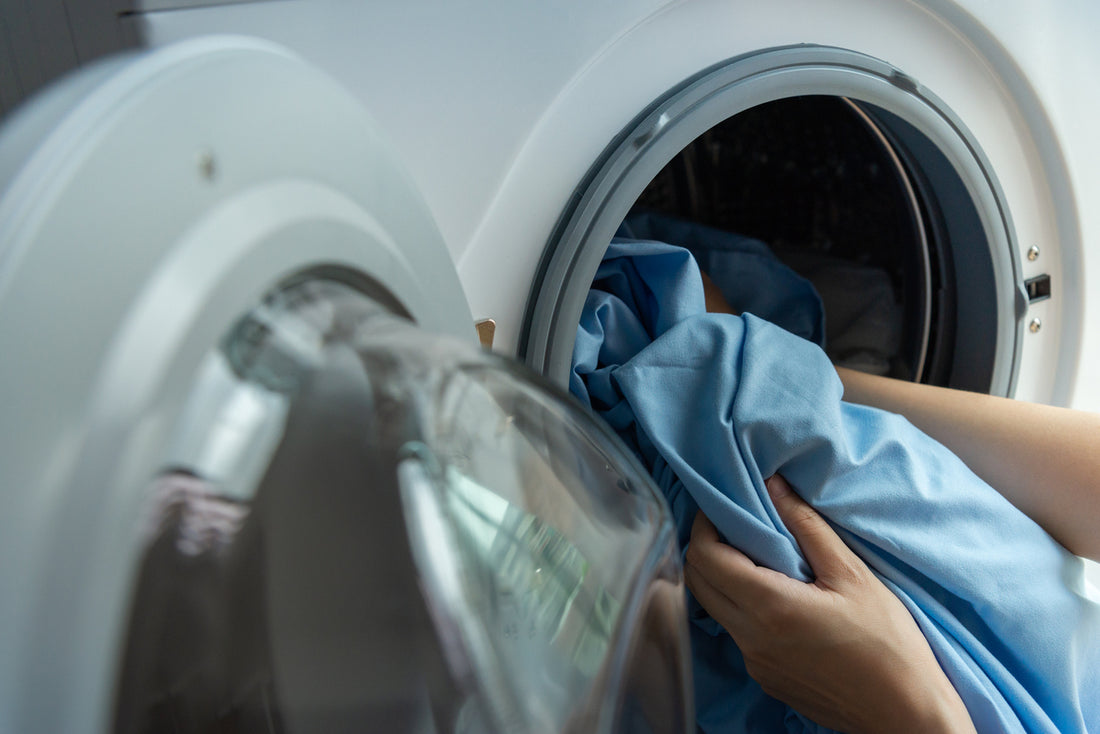
2 Big Tips to Get Stains Out of Bed Sheets
Share
How to Remove Stains from Sheets
One of the most important factors in a good night's sleep is clean, comfortable bedding.
Try as we might, however, we wind up with stains on our sheets. Blood, cosmetics, food, and even wine stains can find their way into our beds. Sometimes they are so stubborn that a regular wash cycle does not remove them.
Fortunately, there are several tried and true stain boosters that will have your laundry clean and fresh as a new daisy in no time.
Tackle it Quick
Stains come out better when they are treated right away. Even small stains should be rinsed out right away. Never use hot water to rinse a stain. Hot water sets the stain into the fabric. Rinse using cold water and completely wetting both sides.
Some stains may rinse away altogether in a cold-water rinse. Others may need a baking soda scrub to help it along.
Mix baking soda and water into a thick paste and apply it to the dampened stained area. Let it dry out until its flaky. Brush off the dried paste and run the sheet through a regular wash cycle.
It's important to line dry the sheets. The high temperatures of the dryer will bake any remnant of the stain into the fabric, making it virtually impossible to take out in the future.

Set-In Stain Solutions
Let's face it, we don't always jump up and attend to a spill as soon as it happens. If we're in bed, chances are we are relaxed. Stripping the bed does not sound appealing. Other times we just don't see the stain, whether its some type of bodily fluid or a dollop of chocolate ice cream, it may go undetected for days and fully set into the fabric.
When you don't catch a stain before it really sets in, it is best to start by soaking the sheets in cold water overnight. It should soak for six to eight hours to fully saturate the stain. Pour distilled vinegar directly onto the stain and then soak for an hour. Cold cycle wash and then line dry the sheets. Vinegar is not only a great stain remover, but it also removes odors. In fact, vinegar is a gentle, organic cleanser which makes it perfect for use on fine fabrics.
However, vinegar doesn't work on oil-based stains. Those stains from lotions, cosmetics, and body oils can be some of the hardest to remove.
Instead of cold water, set in stains should be rinsed in hot water. Wash them as usual but add ¼ cup of Borax washing powder, ¼ cup of vinegar, and a few squirts of dishwashing liquid. Use the soak setting for 30 minutes before washing in hot water.
The Quick Scoop on Bleach
It's tempting to just put a big ole' cup of bleach in a load of stained sheets and be done with it. It's known for its stain-removing properties, but it removes a lot more than that.
Bleach takes the color out of anything it touches. It's also very abrasive and weakens the bonds of the fabric. Oxygen-based bleach products are gentler than chlorine-based bleaches. No type of bleach should be used on wool or silk sheets.
Body oils, blood and other fluids, and perspiration can lead to yellowing or discolored sheets. A build-up of detergent can also cause sheets to lose their brightness.
Soft water supplies require only half the recommended detergent amount. In this case, a ¼ cup of bleach can help but should not be used more than once every six months.
Keeping your sheets clean and in good shape makes falling asleep and staying asleep a whole lot easier. Treating stains correctly also makes your sheets stay looking good much longer, saving money and the environment in one fell swoop.
Go you!
Read on for more great tips on keeping your bedding comfy!

